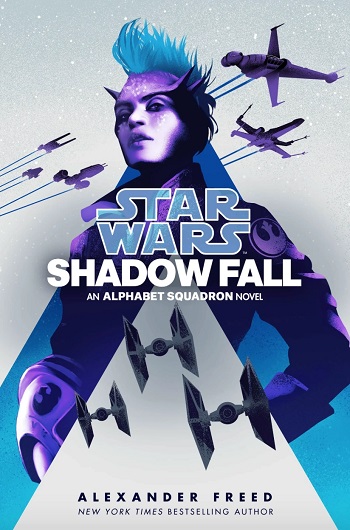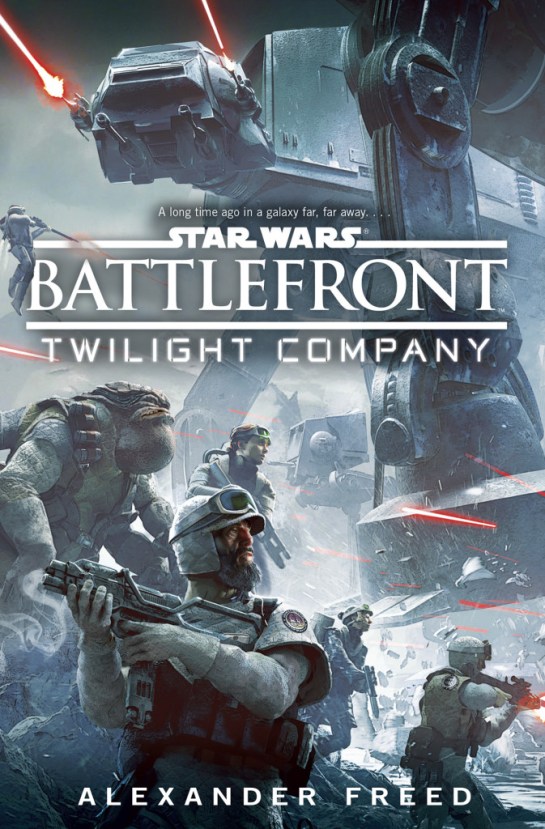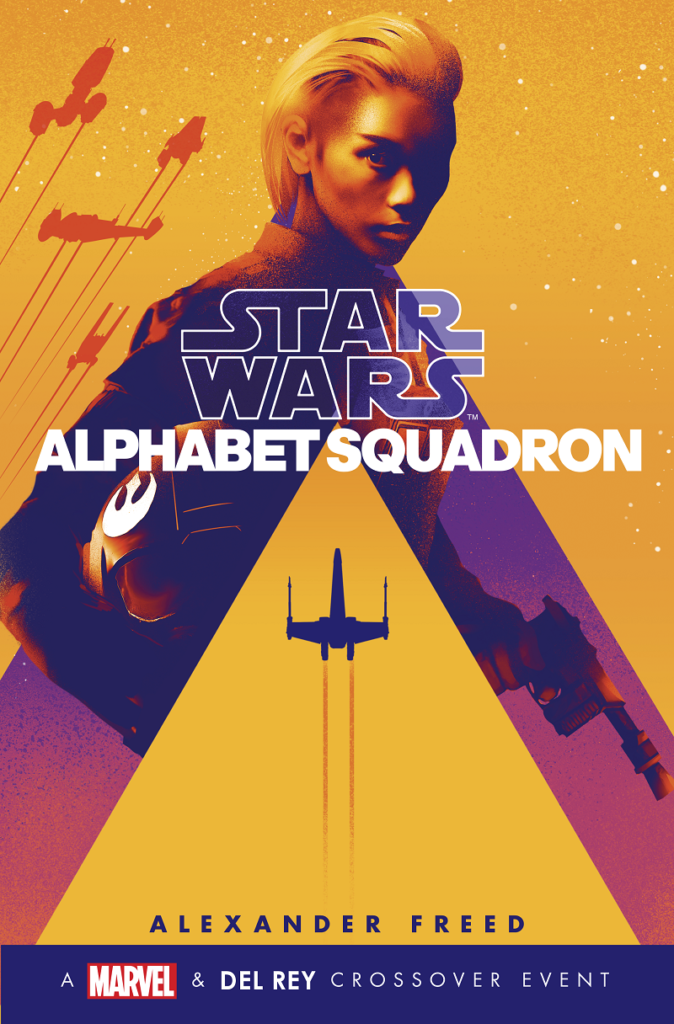
The novels of Alexander Freed focus on the trials and tribulations of frontline soldiers in the Galaxy Far, Far Away. Both his original works and his novelization of Rogue One center on characters’ experiences on the periphery of main galactic events. His latest novel, Shadow Fall, Part II of the Alphabet Squadron trilogy will be released next month. This piece will take a dive into what I’m expecting from Shadow Fall based on the contents and themes of Freed’s previous novels, Twilight Company and the original Alphabet Squadron.
Alphabet Squadron, as the first novel in a planned trilogy, is a bit hampered by the need for setup; some of the things that Freed did best in Twilight Company were therefore not expressed in Alphabet Squadron. For Shadow Fall, my hope is that Freed will more fully realize his vision of the galaxy at war. The post-Operation Cinder, pre-Battle of Jakku timeline that Freed is exploring contains vast narrative possibilities. With the Empire reeling as it loses control of the galaxy, there is massive room for conflict.
In Twilight Company, Freed deftly balanced between covering events around Hoth and telling new stories. I expect Freed will continue to cover his niche of the galaxy, while also tangentially including Chandrila, Kashyyyk, and perhaps eventually Jakku. One of Freed’s major strengths is how he tells established stories from new perspectives. Part of Twilight Company covers the fall of Echo Base from the trenches, and I would be pretty excited to see the battle of Jakku from a similar perspective.

One of the most interesting parts of Twilight‘s Hoth section is Freed’s depiction of daily life as a Rebel. This is something that adds to the richness of the Star Wars universe, but does not need to be covered in the movies. The Empire Strikes Back is a plot-driven film, and there isn’t time for or purpose in seeing the daily life of troops loading cargo onto the Millenium Falcon. Alphabet Squadron was similarly loaded with the burdens of plot, and doesn’t give us as much downtime. Hopefully Freed will have more freedom with Shadow Fall. It would be great if he gets into more detail about how the people of Alphabet Squadron live their lives.
I also expect that without the need to establish his lead characters, Freed will be greatly expanding his supporting cast. Both Alphabet and Twilight feature large casts of characters, which is one of Freed’s strengths. The large difference between the two novels is that Twilight killed off half its cast by the end, whereas Alphabet did not. With Shadow Fall, I’m not sure if Freed will be willing to sacrifice his main cast in the second book of a trilogy. This is why I think he will probably pack the cast with more expendable supporting characters. This is a tactic that was used multiple times in Twilight, but only briefly in one sequence of Alphabet. It might seem cheap to introduce doomed “redshirts”, but Freed is skilled enough that he usually gives them enough depth to make it worth it. One of the distinguishing features of Twilight Company is the willingness to show that in war, people die.
Conversely, in Shadow Fall, there will almost certainly be more appearances from more major Star Wars characters. Twilight Company had brief appearances from Darth Vader, Nien Nunb and an unnamed Han Solo, as part of creating connective tissue with the films. Alphabet Squadron similarly featured General Hera Syndulla, though in a more central role. Shadow Fall will likely feature integration from yet another major character. I couldn’t speculate exactly who that would be, but I would imagine it would take the form of a small appearance of a film character or a larger appearance from a TV show. Personally, I’m rooting for a third option: an appearance from Battlefront II’s Iden Versio. Both of Freed’s novels have featured Imperials switching sides, and Versio would go along nicely with that continued theme.

On the larger point of storytelling, I expect Freed to continue to use smaller stories to give us a larger look at the galaxy. Freed’s strength is how he paints with inference and implication. In Twilight Company, many references are made to other companies and campaigns. There are other Alliance units spoken to and briefly glimpsed. We don’t spend time with them, but we know they are there, implying larger things about the Galactic Civil War. After the collapse on Hoth, Twilight’s leadership attempts to get orders from high command. All communications with other Rebels imply that the Alliance is in total disarray, forcing Twilight to independently launch Operation Ringbreaker.
Alphabet Squadron does the same. Yrica Quell, the squadron’s leader, defects from the Empire during Operation Cinder. She spends part of the novel in a squalid New Republic prison camp. This gives us insight into the major troubles the New Republic would’ve had with a galaxy full of ex-Imperials. Much of Star Wars media glosses over these defections, but Freed uses Quell’s as a microcosm of the problems facing the galaxy. As the conflict nears its conclusion, Freed will no doubt give his audience an idea of the fringes of war in the final days of the Empire.
Overall, my hopes for Shadow Fall are that Freed opts to delve into the meat of the conflict between Shadow Wing and Alphabet Squadron. Much of the first novel was devoted to character development and backstory building. The novel was good, but Freed did not focus on the concepts where he is most skilled. I’m excited for Shadow Fall, and I expect a heftier novel. Hopefully one that delves deeper into Freed’s version of the Galaxy Far, Far Away.
